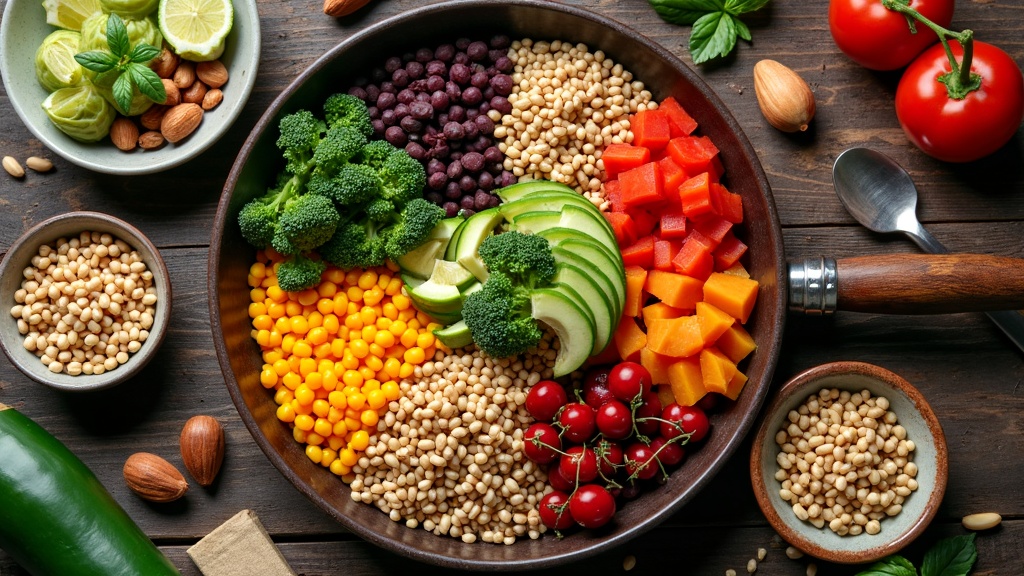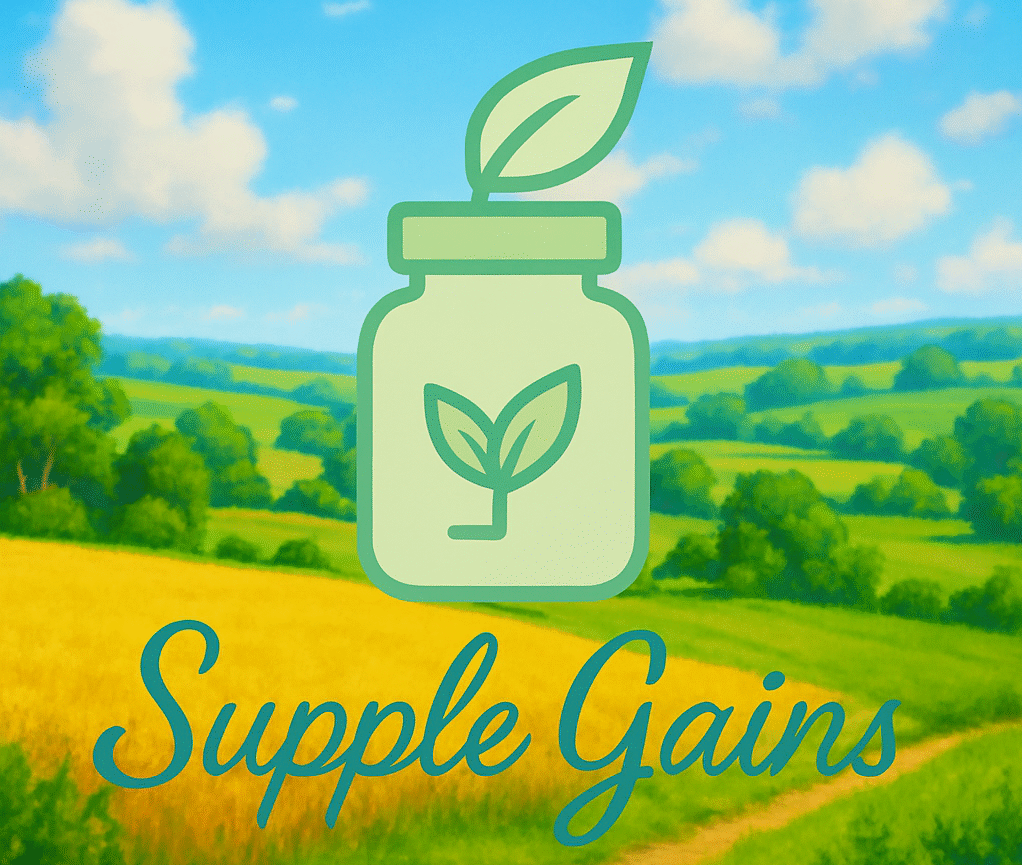Taking care of your mind goes way beyond regular selfcare routines.
Plantbased nutrition is picking up steam for supporting mental health, and for pretty good reasons.
After hearing so much about the moodboosting effects of veggies, fruits, grains, and nuts, I decided to see if there’s real science behind all the hype.
What I found is that what we put on our plate can make a difference in how we feel daytoday.
Here’s my guide to improving mental health through a plantbased approach.

Why What You Eat Affects How You Feel
The gut and brain are like old friends that are always texting.
Whatever you eat, your gut is the first to know, and it gets the message over to your brain pretty fast.
Nutrition and mental health are connected in ways scientists are only just beginning to describe.
For example, the gut has trillions of microbes, known as the gut microbiome, that help produce neurotransmitters.
These chemicals, like serotonin and dopamine, are involved in mood regulation, focus, and calmness.
About 90% of serotonin is actually made in the gut, not the brain. That really shows how connected your gut health is to how you feel each day!
Research over the years, including reports published by the American Psychiatric Association and Harvard Health, spotlights how people eating more whole plant foods tend to report less anxiety and depression.
It’s not magic. Instead, it’s the effect of hundreds of antioxidants, vitamins B, C, E, minerals like magnesium, fiber, and healthy fats.
Together, these keep your brain and gut happy and balanced.
Core Components of a Plantbased Diet That Help Mental Health
While plantbased can mean different things to different people, most experts agree it involves focusing on foods that come from plants and skipping most animal products and processed foods.
Here are a few important elements if you strive for a moodsupporting plantbased routine:
- Variety of Fruits and Vegetables: Colorful veggies and fruits are loaded with vitamins, minerals, and polyphenols that protect your brain cells from damage and support a balanced mood.
- Whole Grains: Oats, brown rice, quinoa, and barley slowly release energy, helping prevent the jittery ups and downs that can happen with sugary foods.
- Legumes and Beans: Lentils, chickpeas, and black beans pack protein and B vitamins that can give you a natural boost and help with nerve health.
- Nuts and Seeds: Walnuts, flaxseed, and chia are great sources of alphalinolenic acid (a plantbased omega3). Studies, like this one from Nutritional Neuroscience, connect omega3s with reduced symptoms of depression.
- Fermented Foods: Sauerkraut, kimchi, miso, and dairyfree yogurts can keep your gut microbiome in balance, which helps with mood regulation and brain function.
Simple Steps for Adding More Plant Power to Your Routine
Switching to a plantbased style doesn’t mean you have to overhaul your entire menu overnight.
Even some small swaps can make a big difference. Here’s what I found helpful when moving more plant foods onto my shopping list:
- Start With One Meal: Swapping your usual breakfast for overnight oats with berries and seeds is a gentle nudge towards a more plantfocused routine.
- Add, Don’t Subtract: Instead of worrying about what to cut, try adding extra veggies or beans to stirfries, salads, and wraps. The more color, the better.
- Try Meatless Mondays: Give your brain and gut a break by having at least one day a week without animal products. I use this day to experiment with new recipes.
- Embrace New Flavors: Spices, herbs, homemade dressings, and dips can turn basic veggies and grains into something you honestly want to eat again.
- Plan Ahead: Preparing snacks like roasted chickpeas, mixed nuts, or fruit helps you stay fueled without grabbing whatever’s nearest (and often less healthy).
All these changes not only support mental wellness, but I found them super tasty too!
Taking slow steps, like adding a smoothie or veggie soup to your routine, really adds up.
If you’re short on time, prepping a batch of roasted veggies, brown rice, or plantbased protein on Sunday can make your week smoother and help you make more mindful choices.
Challenges With Plantbased Eating (And How to Tackle Them)
Just being real: switching up your eating habits can be tough at first, especially if you’re used to certain comfort foods or have a busy schedule.
Here’s what people run into most, and how to get around it.
- Cravings: Missing cheese, eggs, or burgers happens. Going slow and finding similar textures (cashew cheese, grilled mushrooms, or lentil burgers) can help keep those cravings in check.
- Protein Concerns: Many worry about getting enough protein on a plantbased diet. Keeping beans, lentils, tofu, tempeh, and grains on hand solves this. There are plenty of guides on plant protein sources out there for extra inspiration.
- B12 and Iron Shortages: Vitamin B12 isn’t found in plant foods, so a supplement is recommended. Iron from plants is absorbed more slowly, so adding vitamin Crich foods (like citrus or bell peppers) to meals makes it more available to your body.
- Eating Out or Social Events: Plantbased options aren’t always at every restaurant or party. Calling ahead, bringing your own dish, or scouting menus online keeps things easy and stressfree. Sometimes, just checking in with hosts or friends can give you peace of mind and even spark some good conversations about nutritious options.
Challenges are part of starting anything new.
Patience and a little creativity make the plantbased route much more approachable and even fun.
Gut Health and the Mood Connection
One of the coolest things I learned was about the gutbrain axis.
A healthy gut doesn’t just aid in digestion; it can seriously shape brain health and mood.
Fermented foods, highfiber veggies, and beans support the growth of friendly gut bacteria.
When your microbiome is thriving, it can help manage inflammation and stress signals, which researchers say is good for combating anxiety and low mood.
Collecting a rainbow of plantbased foods on your plate is a handy goal for gut (and brain) happiness.
Antioxidants: Tiny Powerhouses for the Brain
When it comes to coping with stress or clearing out mental fog, the antioxidants found in berries, leafy greens, and even dark chocolate can be super useful.
Foods rich in polyphenols (such as blueberries, spinach, and green tea) lower oxidative stress in your body, which may help with maintaining sharper focus and a more contented mood.
It’s not only the big nutrients that matter; the small stuff plays a big role too.
Topping your breakfast with some walnuts and fruit or sipping on herbal teas adds up over time and supports mental resilience.
RealWorld Benefits: What People Notice With Plantbased Eating
I’ve seen some pretty exciting changes when people start adding more plant foods to their routines.
There are folks who notice better sleep, more stable energy, and even clearer thinking, not just less anxiety or fewer down days.
This isn’t just oneoff, either. Reports from studies like this one from Nutrients find that folks following more plantrich diets tend to report greater life satisfaction and less mental distress.
- Improved Mood: People often share that they just feel lighter and more positive over time.
- More Energy: Because plantbased meals help keep blood sugar steady, you avoid that midday slump.
- Better Focus: From leafy greens to pumpkin seeds, these foods deliver nutrients that are linked to clearer thinking and memory.
Making these changes doesn’t have to be an allor nothing approach.
Every extra serving of plants counts toward feeling better.
Over time, these choices form habits that stick even during hectic or stressful periods, and you’re more likely to want those nourishing foods in your life.
Common Questions About Plantbased Nutrition and Mental Health
There are lots of questions when you start rethinking your meals for your mind, not just your tastebuds.
Here are some that come up the most:
Q: Does eating plantbased mean you have to go full vegan?
A:
Not at all. Even adding more plants without cutting everything else out can boost mental health.
Some people feel great as vegetarians or flexitarians, while others find benefits from going totally vegan.
Go with what works for you and your lifestyle.
Q: How long does it take to notice changes in mood after starting a plantbased diet?
A:
Some notice small shifts in a week or two, like more energy.
For bigger mood changes, a month or two is a fair estimate.
Consistency, variety, and staying hydrated help things along.
Q: Are there any plantbased foods to avoid for mental health?
A:
Ultraprocessed options—even plantbased ones—don’t offer the same benefits as whole foods.
Plantbased sodas, chips, and pastries should probably stay as occasional treats instead of mainstays for the best mental health outcomes.
Plantbased Eating in Everyday Life
Rolling plantbased choices into your daily life works best when it’s flexible and fits what you like.
I’ve found that meal prepping a big batch of veggie chili or grain bowls can save time and make weekday lunches less stressful.
Mixing up flavors with spices, getting creative with leftovers, and not stressing about slipups helps keep the routine going longterm.
Even just switching up one meal a day can lead to noticeable improvements in mental well-being.
For folks who want to dig deeper, recommended reads include “Eat to Beat Depression and Anxiety” by Dr. Drew Ramsey and resources from NutritionFacts.org for current science and tasty ideas.
It’s always a good idea to talk with your healthcare provider about major changes, especially if you manage a mental health condition.
Exploring plantbased nutrition is about enjoying real food and tracking down how it supports an even better sense of wellbeing.
Give it a try, see how your mind responds, and keep experimenting to find what works best for you. Plant power might just surprise you with how good you can feel, inside and out!
